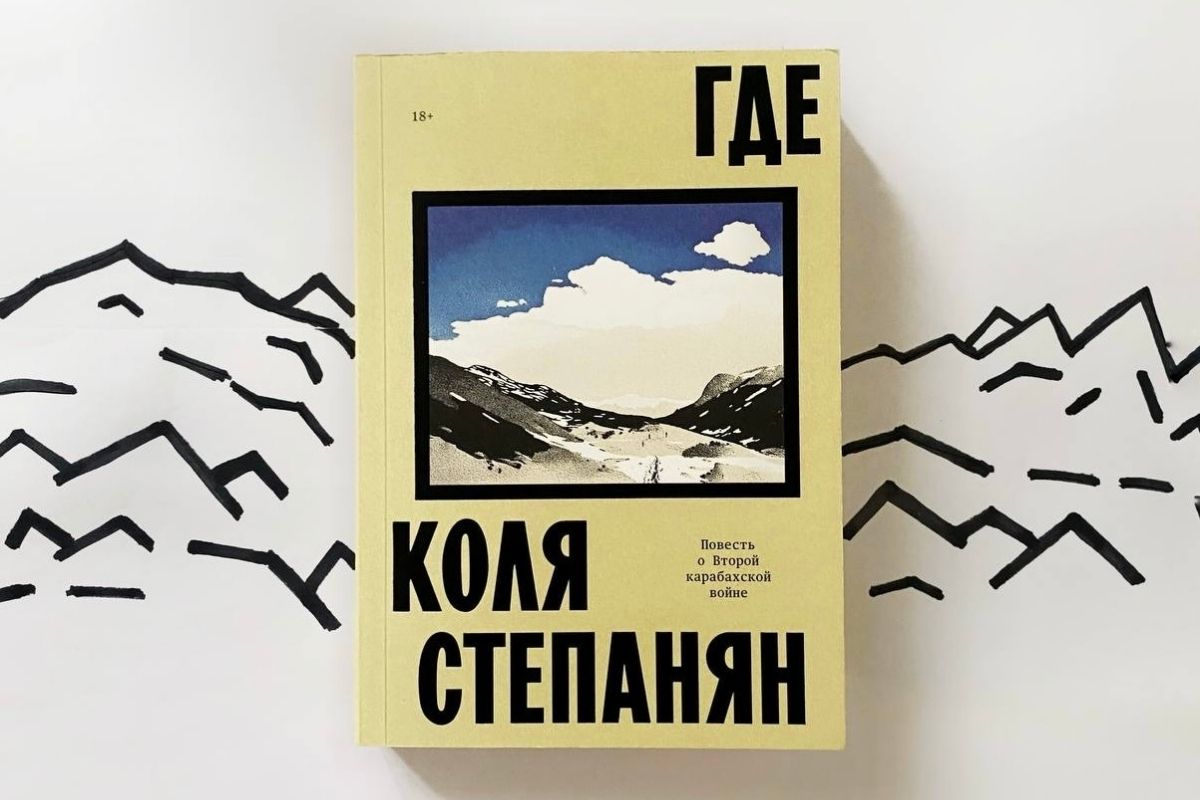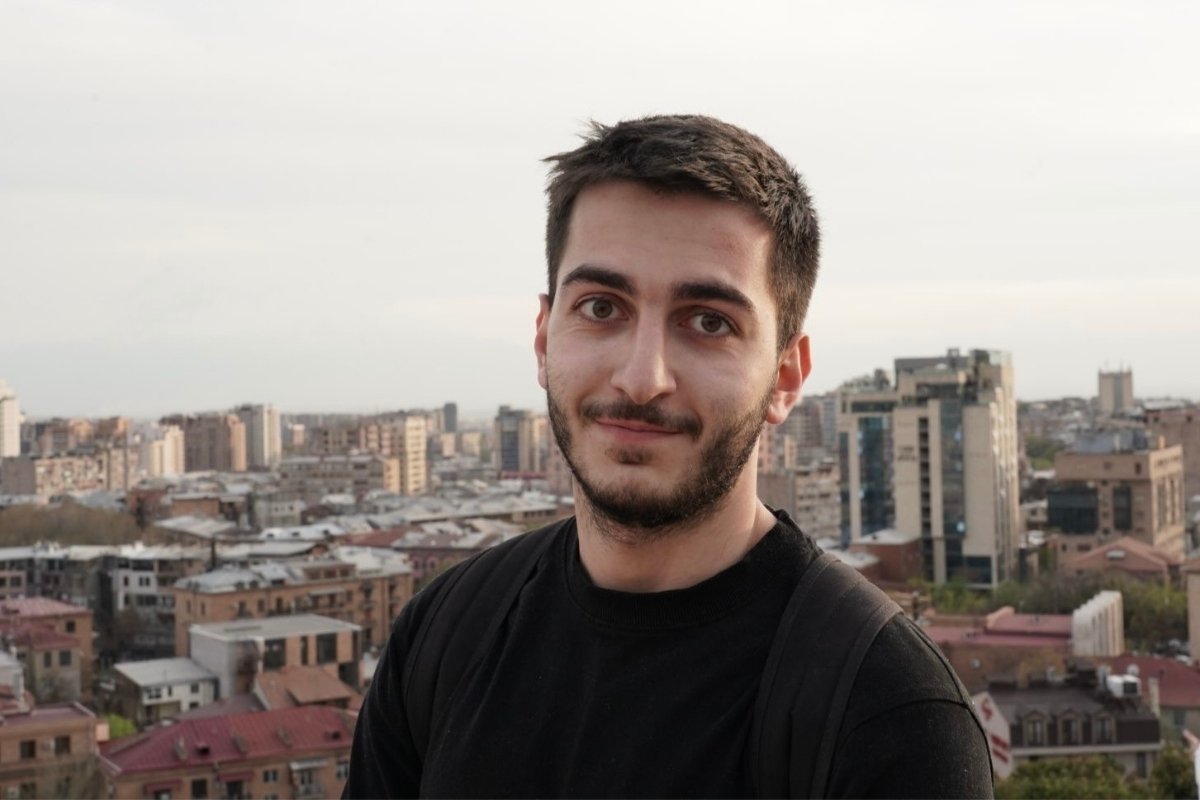My Road
21.07.2025
Repat Story
Where Dreams Take Root
-webp(85)-o(jpg).webp?token=4d966454d434b2aec9c2e6a9e38dec1b)
Growing up in Moscow, first visits to Armenia
Kolya Stepanyan was born in Moscow. His parents moved there from Goris a few years before he was born. As a child, Kolya visited his grandparents in Goris a few times – those trips kept his connection to Armenia alive, even if it sometimes felt fragile.
“When I was 15, I visited Armenia for the first time as a teen. That trip stuck with me. I felt something — maybe even love. Growing up in Russia was tough. Armenians and other minorities were treated like second or third-class citizens. Things have gotten a bit better, but not much. I always felt like an outsider, even though I had many friends in Moscow,” he recalls.
According to Kolya, many Armenians try to blend in as much as possible. Kolya did too. He admits that he even felt embarrassed about his Armenian roots for a long time.
Everything changed when he came to Armenia as an adult. “I finally felt at home; people looked like me. I wasn’t ashamed anymore. I had the same rights as everyone else here. This country belonged to me too. After that trip, I became interested in Armenian culture and language. I started going to Sunday school in Moscow to learn to read and write Armenian. Since then, I dreamed of moving here and joining the Armenian army.”
Moving to Armenia and Volunteering
Not long after, while still in Moscow, Kolya met Sevan Kabakian, the regional director of Birthright Armenia. He learned about a chance to volunteer in Armenia. Right after graduating with a degree in linguistics, he packed his bags and headed to Yerevan to teach English at a language center through the Birthright Armenia program.
Even then, he already knew he was going to stay. Volunteering became a springboard to a new chapter in his life.
Army Service and Writing a Book
Kolya had long dreamed of serving in the Armenian army – even if no one back home took that dream seriously. Once in Armenia, he registered for military service: “I came in 2019 and needed to get my citizenship first. That took about six months. By 2020, I was a citizen. But I was not fit to serve and had to have surgery. I started service in July. And then, the war broke out in September.”
During the war, he was missing in action for 70 days. He shares his harrowing experience – and how he reconnected with the world through his debut book, now published. “The book is called Where. If you look at the cover, it reads ‘Where is Kolya Stepanyan?’ It’s a play on the words. I wrote it in the first person, so the main focus is me – a way to explore myself and everything happening around me: why it’s happening, what I’m doing here. The most interesting part is the emotions, the feelings, the people I encountered. I also revisit my childhood a lot,” he explains.

It is important to note: this is not a documentary or a timeline of events. It is a work of literary fiction – honest, heartfelt and deeply personal. It took Kolya two years to write and became the fulfillment of another dream. Besides serving in the army, he had always wanted to be a writer – though, once again, no one back home really believed in that dream either.
The book is in Russian, with its first launch having taken place in early 2025 in Moscow. An Armenian translation is in the works.
In the Midst of Armenia’s Struggles
Even though he chose to build his life in Armenia, Kolya admits that his mindset remains quite Russian. Some aspects of Armenian society remain hard for him to connect with: “Let’s call it arrogance – this mix of pride and the urge to lecture others. A total stranger can come up and explain to me why I’m wrong and he’s right. It’s off-putting. I find it hard to connect with locals. I find it easier to connect with Russians. And honestly, I think that’s one of the reasons so many Armenians prefer living abroad – you can breathe easier outside the pressure cooker here. Social pressure is intense. It’s partly because Armenia is a monoethnic country – we’re kind of stewing in our own juice. But now more people are coming in, mostly Armenians from elsewhere, and that’s a good thing.”
He also touches on something he calls “thief culture” – a mindset he encountered both in the army and in daily life: “I mention this in the book too. It’s deeply embedded in how many men, especially, see the world. It’s a real problem.” Then there’s the lack of professionalism – in the army, healthcare and education. “In the army, poor training and management nearly cost me my life more than once. After the army, I had a bad amputation and a broken prosthetic. My prosthetics weren’t made properly – one cracked, causing me to collapse in the middle of a Moscow street. That’s the big stuff. I face small problems every day. I can’t fix them all, but I want to talk about it. And if my voice gets louder, maybe more people will start listening.” He’s quick to point out that Armenia is a young country: “Sure, we say Armenia is ancient – and it is – but our state is barely over thirty years old. Moscow had time to grow into a megapolis. Yerevan hasn’t had that yet.”
Where Dreams Come Home
Despite its challenges, Armenia is where Kolya’s greatest aspirations took shape. He served in the army, became a writer, found love and started a family. He believes it is important to have a purpose – and now he has found his. “Problems gave me a reason to act. I feel good here. There are many amazing people who are truly living, creating and trying new things. Life here has a heartbeat. And most importantly, I feel free,” Kolya says.

Confronting the Truth
Kolya believes many Armenians living in Russia have a distorted view of life in Armenia – assuming it is impossible to build a future here. But from what he’s seen, living standards of those who left for Russia aren’t that different from their peers who stayed behind. “So, what did they actually gain? From what I see, they’re losing their Armenian identity – and it’s happening fast, no matter how much they deny it. That’s really sad. If you have a chance to try life here, you should – I really think you should,” he concludes.
By Nare Bejanyan
-
News
-webp(85)-o(png).webp?token=1c587df7df6ef4a8e220e5ea824554b9) 09.01.2026Short-Term Return: How Diaspora Armenians Can Contribute Without Moving Fully
09.01.2026Short-Term Return: How Diaspora Armenians Can Contribute Without Moving Fully -
Armenian by Choice
-webp(85)-o(jpg).webp?token=67c1ef9733155840058be1c3cf71a754) 19.12.20248 min readThe Golden Vine House: A Crossroads of Past and Present, Armenian and Basque
19.12.20248 min readThe Golden Vine House: A Crossroads of Past and Present, Armenian and Basque

-webp(85)-o(jpg).webp?token=35bc085be51a8c3206a26e1725b41703)
-webp(85)-o(jpg).webp?token=7850fc34cc9cf28cd5843af5cf1f9ea4)